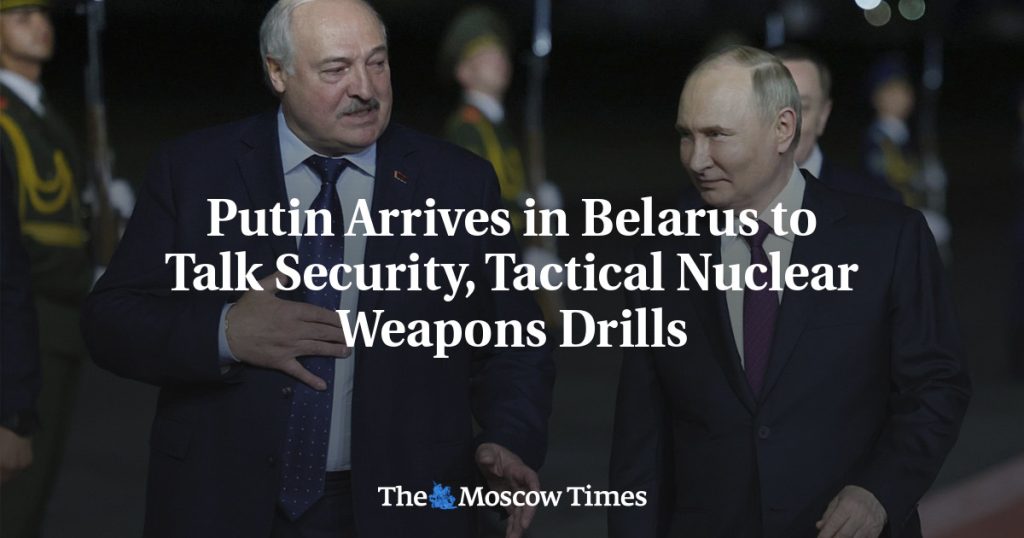Russian President Vladimir Putin traveled to Belarus for talks with President Alexander Lukashenko, with a focus on security and joint tactical nuclear weapons exercises. Putin had ordered the Russian military to conduct these exercises in response to perceived Western threats. In response to Putin’s order, Belarus announced snap inspections of non-strategic nuclear weapon carriers. The first phase of the drills took place in Russia’s Southern Military District, which includes parts of Ukraine that Russia has annexed.
The second phase of the exercises will involve the direct participation of military allies and colleagues from Belarus. However, the exact location of the exercises and whether they will include test firings remain undisclosed. The newly appointed Russian Defense Minister, Andrei Belousov, also traveled to Minsk for the talks, meeting with his Belarusian counterpart Viktor Khrenin. The purpose of the discussions was to further strengthen military cooperation between the two countries and address security concerns in the region.
The visit comes at a time of heightened tensions between Russia and the West, particularly over the situation in Ukraine. Belarus agreed to host Russian tactical warheads on its territory last year amid rising tensions over Ukraine. The joint exercises and discussions between Putin and Lukashenko highlight the close relationship between Russia and Belarus, both strategically and militarily. These talks also serve as a signal to Western nations about Russian-Belarusian cooperation in response to perceived threats.
The Russian government’s recent classification of The Moscow Times as a “foreign agent” has raised concerns about press freedom and democracy in Russia. The journalists of The Moscow Times continue to provide accurate and unbiased reporting on Russia, despite facing attempts to silence their voices. The publication is calling for support from its readers to continue their critical mission of independent journalism. Reader contributions, no matter how small, are crucial in supporting open journalism and ensuring the free flow of information.
The ongoing military exercises and discussions between Russia and Belarus underscore the complex geopolitical dynamics in Eastern Europe. The joint drills serve as a display of military strength and coordination between the two countries, potentially sending a message to Western adversaries. The strategic alliance between Russia and Belarus is further solidified through their cooperation on security matters, including the hosting of Russian tactical warheads in Belarus.
As tensions continue to simmer in the region, the collaboration between Russia and Belarus is likely to play a significant role in shaping the security landscape of Eastern Europe. The joint exercises and talks between Putin and Lukashenko highlight the close ties between the two countries and their shared interests in maintaining regional stability. The outcome of these discussions could have implications for future security arrangements in the region, as well as the broader geopolitical balance of power between Russia, Belarus, and Western nations.


